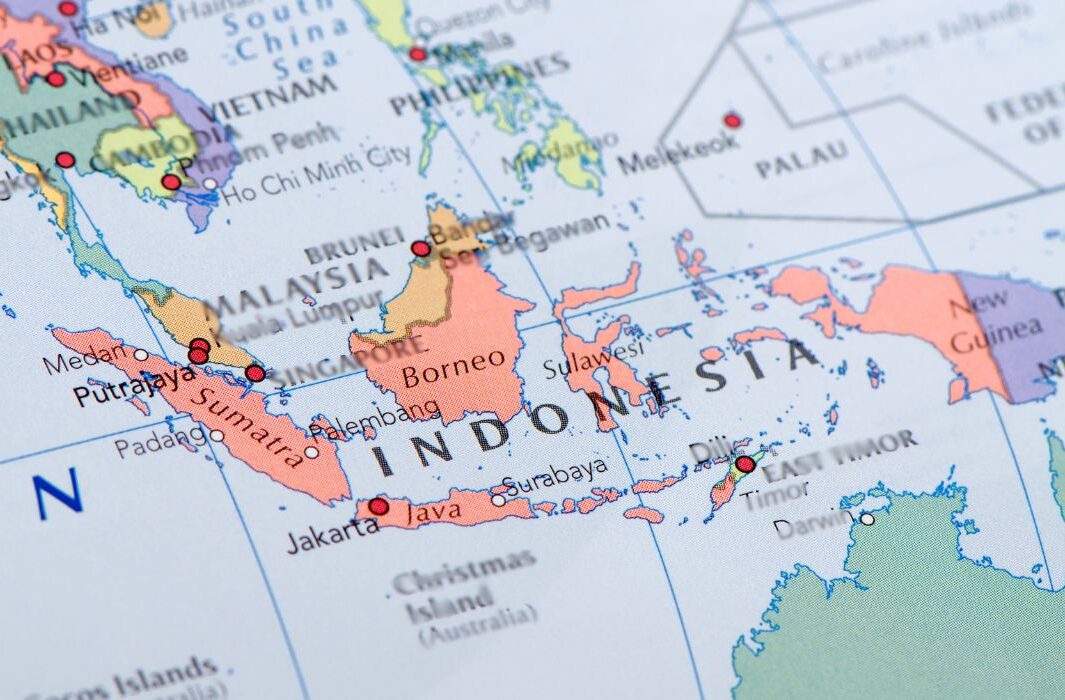The following article was reproduced from Nikkei Asia.
At 75, former Indonesian President Susilo Bambang Yudhoyono has spent long enough in the corridors of power to know the value of getting a message across without spelling it out explicitly.
During an event this month to mark the anniversary of the political party he founded 23 years ago, Yudhoyono cryptically brought up concerns over what he referred to as “two suns.”
“A nation, an entity including a political party, will be chaotic if it has multiple suns,” Yudhoyono said. “You can imagine, it is hot already with just one sun. What if there are two, or even three?”
As Prabowo Subianto, 72, prepares to formally assume Indonesia’s presidency on Oct. 20, having won an election as long ago as February, Jakarta politicos took the hint: Yudhoyono was referring to an increasingly ominous tango between still-sitting President Joko “Jokowi” Widodo and his successor.
For observers, Yudhoyono was likely taking a jab at Jokowi, 63, who they believe to be behind a swath of recent political maneuvers that have further raised alarm bells on the state of Indonesia’s fragile democracy, populated with a raft of mainly center and center-right parties.
The prolonged transition period before Prabowo comes to power has been marked by “an outgoing president who is trying very hard to hold on to power and an incoming president who is very eager to consolidate his own,” said Sana Jaffrey, an expert on Asian politics at the Australian National University.
As evidence of Jokowi’s attempts to bolster influence, Indonesia watchers cite the toppling of the head of the country’s second-largest party and its biggest business lobby.
Jokowi has been accused by critics of trying to take over the reins of the Golkar Party after a dispute over the presidential election with the Indonesian Democratic Party of Struggle (PDI-P), of which he had long been a member, left him without a party base. Some analysts think a recently forced takeover of leadership at the Indonesian Chamber of Commerce and Industry, known as Kadin, was also linked to that.
As this year has played out, observers also see Jokowi’s hand in an ultimately overruled effort to change electoral rules to pave the way for his son to stand as a regional gubernatorial candidate, as well as an amendment of a law to restore an influential presidential advisory agency harking back to the iron-fisted regime of former President Suharto from 1966 to 1998.
Andrew Delios, professor at the National University of Singapore Business School, said the Jokowi and Prabowo maneuvers in themselves should be viewed as politics as usual, echoing moves by Narendra Modi in India, Donald Trump in the United States and Xi Jinping in China.
“We expect elected or appointed officials to try to enhance their power base,” Delios told Nikkei Asia. But the political pressures will test Indonesian democratic institutions’ ability to hold firm, a necessity for the country to become a mature democracy, he said.
On the other hand, the professor said, a consolidation of power and a continuation of Jokowi’s economically oriented policies by Prabowo could potentially “streamline policymaking and launch economic-growth oriented policies in an efficient manner, like Singapore and China.”
While Indonesia has set its targets for economic growth at 5.1% for 2024 and 5.2% for 2025, compared with 2023’s 5.05%, Prabowo has set an ambitious midterm target of 8% growth in Southeast Asia’s biggest economy by 2029.
Prabowo’s landslide win in the presidential election more than seven months ago has been attributed at least in part to strong support from Jokowi, whose eldest son, Gibran Rakabuming Raka, ran for the vice presidency alongside Prabowo.
Australian National University analyst Jaffrey said “overlapping interests” between the current and future presidents have led to their concerted efforts to quash opponents ahead of regional gubernatorial elections in November.
Most notable is the ousting of former Jakarta Gov. Anies Baswedan, an opponent of Prabowo in the presidential race, from the Jakarta governor election. Despite leading opinion polls by a wide margin, Anies’ reelection bid abruptly ended after three political parties that had previously supported him jumped ship to support Prabowo. The moves against Anies are believed by analysts to be an attempt to scuttle his chances in the next presidential election, due in 2029.
“Again, the pattern is similar,” Anies said during an interview with Nikkei in Tokyo last week. “The government should not intervene [in the] political party process. Political parties [have] to be respected. However … we are seeing pressures [applied] to political parties.”
Prabowo’s Advanced Indonesia Coalition, backed by Jokowi, has now expanded to consist of 13 political parties — including seven of eight parties that won seats in the House of Representatives.
Together, they control about 80% of parliament’s seats, leaving only the PDI-P, Jokowi’s former party, as the opposition. The new 580 parliamentary members will be sworn in on Oct. 1.
Even so, Prabowo retains his distaste for the politics of opposition rather than collaboration. “We need to cooperate. No need to copy other cultures. Oppositions, squabbles … are Western culture,” Prabowo said in a speech last month.
The House of Representatives last week passed an amendment to the state ministries law to allow the president to appoint more than 34 cabinet ministers, the previous ceiling. Indonesia watchers see this as a means to accommodate members of Prabowo’s bloated coalition.
The new cabinet “might be 50% filled by Jokowi’s people,” Ujang Komarudin, a political lecturer from University Al-Azhar Indonesia, told Nikkei Asia. “That is Prabowo’s accommodative politics.”
Prabowo has defended his enlarged cabinet plan, which local media has said could include up to 44 ministers. “Indonesia is a big nation, similar to the European [Union] with its 27 … countries. If Indonesian elites can collaborate, Indonesia will be unstoppable.”
Meanwhile, Indonesia will hold simultaneous nationwide elections of regional leaders for the first time on Nov. 27. The races will be for governors of 37 provinces, and heads of 508 municipalities and regencies, an administrative subdivision that lies below provinces and above districts in a country of more than 17,000 islands and 280 million people. The two-month election campaign period is due to start on Wednesday.
These ballots don’t just set the stage for up-and-coming politicians at the national level, especially for key provinces such as Jakarta, West Java and Central Java — their outcomes will also play a part in determining the success of Prabowo’s programs. His plan for free meals for schoolchildren, for example, will require local administrations’ support for on-the-ground implementation.
While Prabowo will take over the presidency very soon, Jokowi, who is constitutionally barred from a third term, is looking to secure a role for himself and his family as the next administration plays out, observers say.
With Jokowi’s backers in charge in the current parliament, a law governing the presidential advisory council was amended last week. Critics say it will restore the council’s authority to a level on par with state institutions, speculating that Jokowi will join the council after stepping down as president. Jokowi himself has said he will instead return to his hometown in Solo, Central Java, after passing on the presidential baton.
“Laws are being played, the constitution seems powerless to fight injustice and greed of the rulers,” anti-corruption watchdog Transparency International Indonesia said in an August statement criticizing Jokowi. “Dirty politics is used as a vehicle to ensure a place for political dynasty that has been built after 10 years in power.”
In a high-profile example of what critics see as Jokowi meddling, a Supreme Court ruling in May gave leeway for the president’s youngest son, 29-year-old Kaesang Pangarep, to run in the Central Java governor’s election despite not meeting the minimum age requirement. The move echoed legal changes last year that allowed Jokowi’s eldest son, Gibran, now 36, to join the 2024 presidential race as Prabowo’s running mate despite not yet being 40, the previous age bar.
But the Constitutional Court overturned the Supreme Court ruling last month, triggering moves by lawmakers to revise regional elections law – effectively in defiance of the court’s order. These were stymied, however, when widespread protests by students and civil society groups flared up, ending Kaesang’s election bid.
On the parliament’s move to circumvent the Constitutional Court ruling, Jokowi said, “We respect the authorities and decisions by each state institution. It is a constitutional process commonly happening in our state institutions.”
Analysts also believe the president’s influence was at play earlier this month in the toppling of the chief of the Kadin chamber of commerce, a move that has stoked fears of a new kind of political meddling in the business community.
Golkar politician Anindya Bakrie forcibly took over the chamber’s leadership from Arsjad Rasjid, who headed the campaign team for PDI-P-backed candidates during the presidential election.
Jokowi has denied all accusations of interference. On the Kadin squabble, he said, “Do not pass me the hot ball [potato],” with the presidential spokesman adding the matter was down to the “internal affairs of Kadin.”
But Jaffrey of Australia National University criticized “a very heavy dose of coercion” in Jokowi’s moves to secure his role after leaving office.
“Perhaps the most lasting thing that Jokowi is leaving behind is a very powerful playbook for coercive politics,” Jaffrey said. “Prabowo will be inheriting a presidency that is more powerful and less accountable than it has ever been since the democratic transition in 1998.”
Former leader Yudhoyono professed himself optimistic over the future at another speech given earlier this month to business leaders at a Bloomberg CEO forum — while also issuing a less coded message for Prabowo.
“The transition to President-elect Prabowo presents a unique chance to redefine our trajectory,” he said. “In my constructive conversation with Mr. Prabowo, I have a strong belief that the next government — inshallah — will and can do more to enhance our economic growth, to promote people’s welfare and to safeguard our democracy.”
Professor Andrew Delios was first interviewed in Nikkei Asia.





